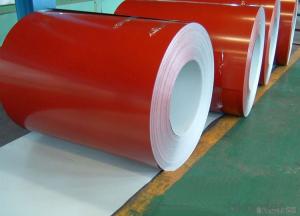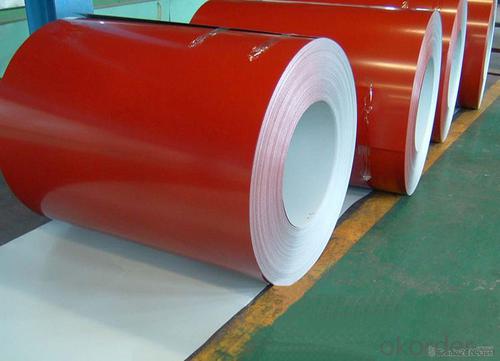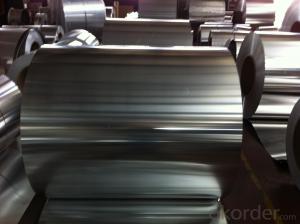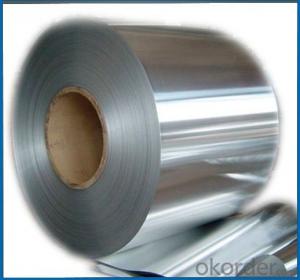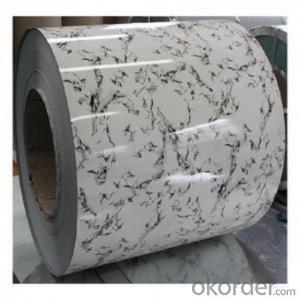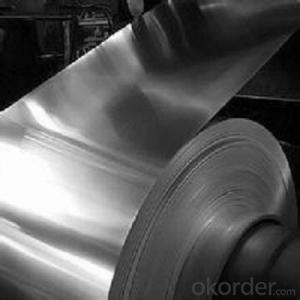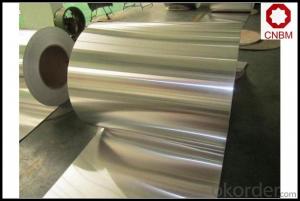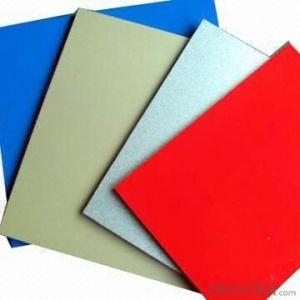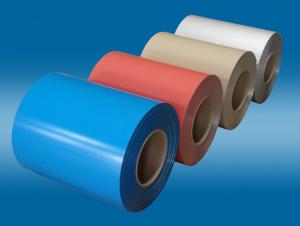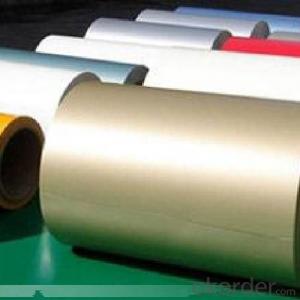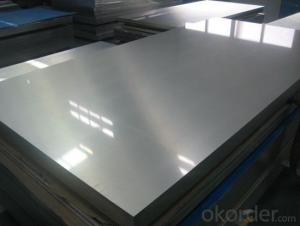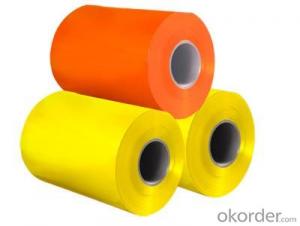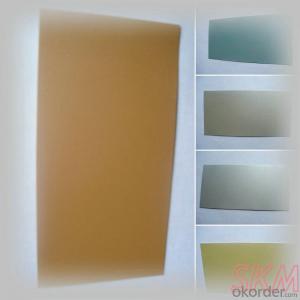Coil Aluminum Roll - Pre-Painted Aluminum Coil/Sheet Stone Series 1
- Loading Port:
- Shanghai
- Payment Terms:
- TT OR LC
- Min Order Qty:
- 5 m.t.
- Supply Capability:
- 2000 m.t./month
OKorder Service Pledge
OKorder Financial Service
You Might Also Like
Specification
Structure of Aluminium Coil/Sheet Stone Pre-painted Serie 1:
Aluminium coil/sheet are of a wide range of specifications, and they are widely used in:Interior: wall cladding, ceilings, bathrooms, kitchens and balconies, shutters, doors...Exterior: wall cladding, facades, roofing, canopies, tunnels,column covers , renovations...Advertisement: display platforms, signboards, fascia, shop fronts...
Main Features of Aluminium Coil/Sheet Stone Pre-painted Serie 1 :
1) High gloss
2) High flexibility
3) Impact resistance
4) Excellent weather-proof durability
5) Anti-ultraviolet
6) High erosion resistance
7) Stable color and gloss
8) Good mechanical processing performance
9) Abrasion resistance
Image of Aluminium Coil/Sheet Stone Pre-painted Serie 1:
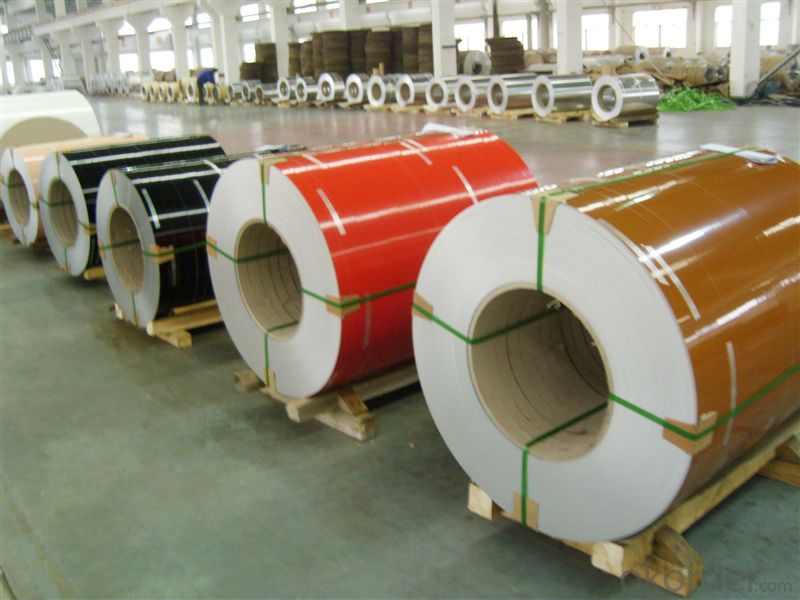
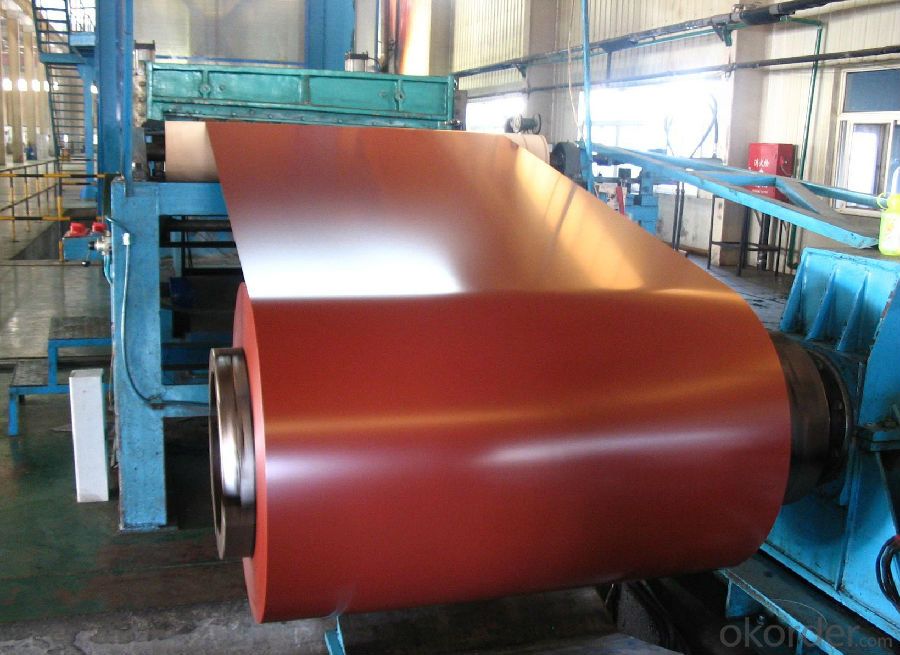
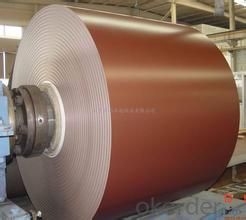
Specifications of Aluminium Coil/Sheet Stone Pre-painted Serie 1:
Alloy | A1100,A3003, A8011 etc |
Temper | H16,H18,H26 |
Thickness | 0.02-3.0mm |
Width | Standard width:1200 1240mm |
30mm-1500mm | |
Diameter | Outside dia:1200mm\1000mm\1240 |
Interior dia: 405mm,505mm | |
Weight | 1.5T/coil,2.5 T/coil,3.0 T/coil |
Coating | PE, PVDF, |
Surface | Color coated, Embossed, mill finish, |
Color | As to RAL |
Gloss | 10 - 90%(EN ISO-2813:1994) |
Coating Thickness | P E : more than 18 micron |
PVDF: more than 25 micron | |
Coating Hardness (pencil resistance) | More than 2h |
Coating adhesion | 5J(EN ISO-2409:1994) |
Impact Resistance | No peeling or cracking(50 kg/cm,ASTMD-2794:1993) |
Flexibility (T-bend) | 2T |
MEK resistance | More than 100 a.What is monthly capacity |
FAQ of Aluminium Coil/Sheet Stone Pre-painted Serie 1:
a.What is monthly capacity
---CNBM is one stated own company and our monthly capacity is about 2000tons.
b. Now which countries do you export your goods?
---Now we export to South East Asia,Africa, North America,South America ect.
- Q: What are the different slitting options for aluminum coils?
- There are several different slitting options available for aluminum coils, depending on the specific requirements and end use of the material. Some of the commonly used slitting options for aluminum coils include: 1. Single Slit: This is the most basic and widely used slitting option, where the aluminum coil is cut into two narrower coils with a single cut along the center. 2. Double Slit: In this option, the aluminum coil is cut into two narrower coils with two parallel cuts along the center, resulting in smaller widths for each coil. 3. Multi-Slit: This option involves cutting the aluminum coil into multiple narrower coils with multiple parallel cuts along the center. It allows for the production of several smaller coils from a single wider coil. 4. Ribbon Slit: This slitting option is used when the aluminum coil needs to be slit into very thin strips, often used in applications such as electrical wiring or packaging. 5. Oscillate Slit: This option is suitable for applications that require varying widths of aluminum strips. The coil is slit in a back-and-forth motion, allowing for flexibility in producing different widths. 6. Custom Slitting: Depending on the specific needs of a project, custom slitting options can be implemented. This involves tailoring the slitting process to achieve unique widths, lengths, or shapes of aluminum strips. It is important to consider the desired application, required dimensions, and the capabilities of the slitting equipment when choosing the appropriate slitting option for aluminum coils.
- Q: How are aluminum coils used in the production of solar panels?
- Aluminum coils play a crucial role in the production of solar panels. These coils are typically used in the construction of the photovoltaic (PV) module, which is the core component responsible for converting sunlight into electricity. Firstly, aluminum coils are used as the primary material for the frame of the PV module. The frame provides structural support and protection to the delicate solar cells, ensuring they are secure and safe from external factors such as weather conditions or physical damage. Aluminum's lightweight yet sturdy nature makes it an ideal choice for this purpose, as it offers durability without adding excessive weight to the overall structure. Secondly, aluminum coils are often used as the backsheet material in solar panels. The backsheet is a critical component that protects the solar cells from moisture, dust, and other environmental elements. It acts as a barrier, preventing any potential damage to the cells while also providing electrical insulation. Aluminum's excellent corrosion resistance and electrical conductivity make it an ideal material for this application. Furthermore, aluminum coils are used in the production of the interconnection system within the solar panel. This system consists of conducting wires that connect the individual solar cells, allowing the flow of electricity between them. Aluminum's high electrical conductivity ensures efficient transmission of the generated electricity, minimizing energy losses within the panel. In addition to these key roles, aluminum coils are also used in the manufacturing of various other components within solar panels, such as junction boxes, connectors, and mounting systems. These components contribute to the overall functionality and reliability of the solar panel. Overall, aluminum coils are extensively utilized in the production of solar panels due to their lightweight, durable, and corrosion-resistant properties. Their versatility and ability to withstand harsh environmental conditions make them an essential material for ensuring the longevity and efficiency of solar panel systems.
- Q: This question asks for the distinctions between two types of metal coils: aluminum and iron.
- <p>Aluminum coil and iron coil differ in several aspects. Aluminum coil is lightweight, corrosion-resistant, and has good electrical conductivity, making it ideal for applications like electrical wiring and packaging. Iron coil, on the other hand, is heavier, stronger, and more magnetic, commonly used in construction and manufacturing for reinforcement and structural support. Additionally, iron is more prone to rust compared to aluminum, which is more resistant to corrosion. The cost and availability of these materials also vary, with aluminum being more abundant and less expensive than iron.</p>
- Q: I need to draw dot and cross diagrams to explain how they bond, but if the aluminium outer shell has 13 electrons and the oxygen one has 6, how do they all become happy atoms, and all have a full outer shell? please help! thank you.
- Aluminium Oxide Ionic Bonding
- Q: I have found many articles claiming that the aluminum content in soy (baby) formula is very high.What I am wondering is- does regular old soy milk for adult consumption also have very high aluminum content?I am extensively researching all possible ways to relieve my 14 month olds terrible constipation. He is not allergic to milk- he was on a milk-based formula. We VERY slowly switched over to whole cow's milk- which turned out to once again be terribly constipating. It was suggested I give lactose-free milk a try- which has seemed to help a little bit- it was working OK for a few days- but he did have quit the hard (and painful) bowel movement a couple days ago. We are trying other options- juices, he's active, we are trying to get enough fiber into this picky eater's diet. I am just researching the possibility of soy milk if this problem persists.I am not willing to give it to him if the aluminum content is even a small possibility. I am not finding much info about adult soy milk. Anyone??
- I found this on the FAQ for Eden Soy products: Claim 12: Soy foods may contain harmful levels of aluminum. (Fallon, 1996)[21] Answer 12: The author describes aluminum occurring in soy as a result of an industrial processing step. This occurs only when producers use harsh alkaline soaking solutions that leach aluminum from aluminum processing equipment. Not all soy processing uses alkaline soaking solutions and not all soy is produced using aluminum equipment. Harsh alkaline soaking solutions are used mainly in the production of modern soy foods such as soy protein isolates, soy protein concentrates, soy supplements, soy protein shakes, textured soy protein (TSP), etc. Eden does not use alkaline soaking solutions and does not use aluminum equipment. Our test results show no trace of aluminum in Edensoy, testing at a sensitivity of .1ppm. The study it references talks about soy formula, not soy milk. It sounds as if the soy picks up its aluminum content from the manufacturing equipment. Edensoy claims they are aluminum-free (implying that other companies are not)... however, it is of course a biased source! Our oldest has been on soy milk/goat milk combination for a while now (we don't do dairy), however, we are in process of weaning off soy for good as we have other concerns besides aluminum: MEDICAL CONDITIONS POSSIBLY ATTRIBUTABLE TO SOY CONSUMPTION Asthma Chronic Fatigue Depression Diabetes Heart Arrhythmia Heart or Liver Disease Infertility/Reproductive Problems Irritable Bowel Syndrome Learning Disabilities/ADD/ADHD Pancreatic Disorders Premature or Delayed Puberty Rheumatoid Arthritis Thyroid Conditions: Auto-Immune Thyroid Disorders (Graves’ or Hashimoto’s Disease) Goiter Hypothyroidism Hyperthyroidism Thyroid Nodules Thyroid Cancer Other thyroid disorders Uterine Cancer Weight Gain nothing is proven but the possibility is enough for us to give it up).
- Q: I have the Samp;W Mamp;P 15 rifle and was wondering if I should oil the exterior of the rifle. The receiver material is 7075 T6 Aluminum and the finish is Hard Coat Black Anodized (specifications on website). Any advice or tips are welcome! Thanks!
- Aluminium does not rust. The anodized finish protects the aluminium from oxidization. So no, oiling the finish is not necessary.
- Q: Can aluminum coils be used in vacuum applications?
- Indeed, aluminum coils are capable of being employed in vacuum applications. Aluminum, being a frequently utilized substance in vacuum systems, possesses exceptional attributes including low outgassing, high thermal conductivity, and commendable corrosion resistance. Consequently, these qualities render aluminum coils suitable for a diverse array of vacuum applications, encompassing, but not restricted to, vacuum chambers, vacuum pumps, cryogenic systems, and particle accelerators. Nevertheless, it is crucial to acknowledge that aluminum may react with particular gases or chemicals. Hence, it is imperative to carefully evaluate the specific necessities and compatibility of the vacuum application prior to employing aluminum coils.
- Q: The choice between Vinyl and Aluminum? By Mastercraft Exteriors
- The choice between Vinyl and Aluminum? It is a common question that we hear from our clients, “Which is better, aluminum or vinyl?” Although aluminum siding was traditionally thought to be more durable, today’s vinyl products are far superior. The remodeling panels used in today’s siding markets are on average double the thickness of the aluminum. Most vinyl siding panels have fade warranties, high wind and tensile strength guarantees and insulate the home from both temperature variances and noise. Aluminum siding is also painted for appearance which can scratch easily showing the metallic underside. This is far different from vinyl, where the manufacturing process includes “through color” consistency. Vinyl siding can be ordered in traditional Straightlap and Dutchlap of all sizes, simulated cedar shake and scallop panels, and board batten. In most cases during insurance claim remodeling an upgraded vinyl panel can be substituted for the amount allotted for the aluminum siding. Another reason Mastercraft Exteriors supports the use of vinyl panels during the remodeling process, is its ability to be serviced. If a dent occurs in aluminum siding the surrounding panels must also be replaced to fix that one dent. Vinyl siding can be easily switched out in a matter of minutes, keeping the cost down to the client. Mastercraft Exteriors
- Q: Are aluminum coils suitable for marine applications?
- Yes, aluminum coils are suitable for marine applications. Aluminum is a corrosion-resistant material, making it an excellent choice for use in marine environments where exposure to saltwater and other corrosive elements is common. Aluminum coils are lightweight, durable, and have high strength-to-weight ratio, which is important for marine applications where weight reduction is desired. Additionally, aluminum coils can withstand extreme temperatures and have good thermal conductivity, making them suitable for various marine heating and cooling systems. Overall, aluminum coils are a popular choice in marine applications due to their corrosion resistance, durability, and lightweight properties.
- Q: Are aluminum coils compatible with different joining methods?
- Yes, aluminum coils are compatible with different joining methods. Aluminum is a highly versatile metal that can be joined using various techniques such as welding, brazing, soldering, and mechanical fastening. The choice of joining method depends on the specific application and the desired properties of the joint. Welding is commonly used to join aluminum coils as it provides a strong and durable bond. Several welding techniques like MIG (Metal Inert Gas), TIG (Tungsten Inert Gas), and resistance welding can be used depending on the thickness and type of aluminum alloy being joined. Brazing is another effective method for joining aluminum coils. It involves the use of a filler material that has a lower melting point than the base metal, which is heated to create a strong joint. Brazing is commonly used when the aluminum coils need to be joined to other dissimilar metals. Soldering is suitable for joining thin aluminum coils or when a lower temperature method is required. It involves melting a low-temperature alloy (solder) to join the coils together. Soldering is commonly used in electronics and plumbing applications. Mechanical fastening methods such as bolts, screws, rivets, or clips can also be used to join aluminum coils. These methods provide a reliable and removable joint, making them suitable for applications where disassembly may be required. In summary, aluminum coils are compatible with various joining methods, including welding, brazing, soldering, and mechanical fastening. The choice of joining method depends on factors such as the application, the type of aluminum alloy, and the desired properties of the joint.
Send your message to us
Coil Aluminum Roll - Pre-Painted Aluminum Coil/Sheet Stone Series 1
- Loading Port:
- Shanghai
- Payment Terms:
- TT OR LC
- Min Order Qty:
- 5 m.t.
- Supply Capability:
- 2000 m.t./month
OKorder Service Pledge
OKorder Financial Service
Similar products
Hot products
Hot Searches
Related keywords
